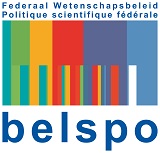| Presentation | Research areas | Research projects | Publications | News | Team | Contacts | ||||||||

|
||||||||
IDEALiC
(DD)² - The second order digital divide: a research project for the programme "Society and future" of the Belgian Federal Science Policy Office (2008-2010) The project aims at understanding the scientific scope, empirical foundations and societal issues of the “second order digital divide”, which concerns growing inequalities among ICT users as fast as the access gap is narrowing. The concept of second order digital divide is rather new in the agenda of social research about the Internet and its policy implications need an in-depth investigation, targeted to the Belgian context. The overall goal is to anticipate future trends in the social differentiation of Internet usages, the associated risks of social inequalities and associated opportunities for improved social inclusion. The project reviews hypotheses and research questions in this emerging research area, targeting them to the European context and the Belgian situation. Original empirical material is collected through qualitative interviews, while existing survey results are assessed from the angle of the second order divide. The prospective analysis outlines future trends, leading to widening or narrowing the second order digital divide. Conclusions and policy recommendations rely on these analyses. The project looks beyond the current policies aiming at bridging the first order digital divide (unequal access) and explores issues and solutions related to the next steps in the diffusion of Internet (differentiated use). Dowlodable summary in English (13 pp.): click here More publications in French: on the French page of the project Digital inequalities among off-line youth: a study for the Federal Ministry for Social Integration (2009) About 12% of young people between 16 and 24 years do not use the Internet regularly, as their access to the Internet at home, at work or in their training institution do not allow them for autonomous and efficient usage. Although they represent only a small minority within their generation, those young people are more exposed to risks of marginalisation or exclusion. The study aims at indentifying who are the off-line young people, why they are off-line and which are the consequences for them. Article in English: Mertens L., Brotcorne P., Valenduc G., Offline Youth and the Digital Divide: Revisiting the Concept of "Digital Natives", in Engelen J., Dekelver J., Van den Bosch W., Social Media for Social Inclusion of Youth at Risk, Proceedings of the INCLUSO 2010 Conference, KULeuven, Sept. 2010, pp. 73-80. More publications in French: on the French page of the project
|
||||||||
| Presentation | Research areas | Research projects | Publications | News | Team | Contacts |

